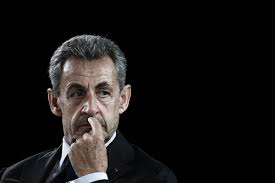The Democratic Republic of Congo (DRC) was shaken on Tuesday after news broke that former president Joseph Kabila has been sentenced to death by a military court.
According to local media and official court documents, Kabila, who ruled the DRC from 2001 to 2019, was convicted on charges related to corruption, treason, and alleged involvement in crimes against humanity committed during his 18 years in power.
The trial, which had been ongoing for several months, was conducted under the DRC’s special military tribunal system.
The court found him guilty of:
Misuse of state funds during his presidency.
Authorizing violent crackdowns on opposition groups and protesters.
Collusion with foreign armed groups that destabilized the eastern DRC.
Kabila, now 54, was not in court when the verdict was delivered. Reports suggest he has been living under tight security between Kinshasa and his private ranch in Katanga since leaving office.
His lawyers have announced that they will appeal the ruling, describing the trial as “politically motivated and unconstitutional.”
This is the first time in modern DRC history that a former head of state has received such a harsh sentence.
Reactions have been mixed:
Human rights activists welcomed the ruling, saying it sends a strong signal that no leader is above the law.
Supporters of Kabila called the verdict a witch-hunt by President Félix Tshisekedi’s government, meant to weaken the Kabila family’s political influence.
Regional leaders from the African Union (AU) and Southern African Development Community (SADC) have expressed concern, urging DRC authorities to ensure due process and avoid further political instability.
Kabila came to power in 2001 after the assassination of his father, Laurent-Désiré Kabila. He led the country through two civil wars and remained in office until 2019, when he stepped down after controversial elections brought President Tshisekedi to power.
The ruling raises new fears of unrest in the DRC, a country already battling armed conflicts in its eastern provinces, corruption, and political divisions.
The government has not yet issued an official statement on how or when the sentence might be carried out.



